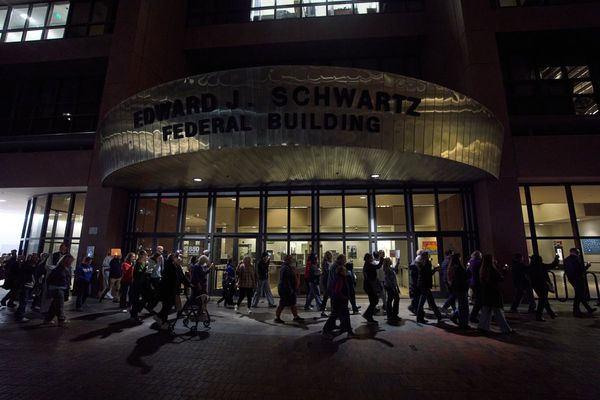
From the outside, a man in his 40s might seem like he has it all together: career, family, home, and responsibilities. But beneath the surface, many are quietly struggling with a deep sense of loneliness that few people talk about. This decade often brings a perfect storm of emotional disconnection, shifting relationships, and fading friendships. The result? A growing number of men are feeling isolated, misunderstood, and emotionally adrift. If you’re in your 40s or love someone who is, here are eight reasons why men in their 40s are so lonely.
1. Friendships Fade and Aren’t Replaced
By the time men reach their 40s, many of their close friendships have faded due to time, distance, or shifting priorities. Unlike women, who tend to maintain emotional connections through regular communication, men often rely on shared activities that disappear with age. Work, parenting, and household responsibilities leave little room for socializing. Without intentional effort, friendships become memories instead of lifelines. This lack of connection can leave men feeling emotionally unsupported and deeply alone.
2. Emotional Expression Is Still Stigmatized
Even in 2025, many men still feel pressure to suppress vulnerability. Cultural expectations reward stoicism and discourage emotional openness, especially in middle age. Men who feel overwhelmed, sad, or disconnected often keep those feelings to themselves. This emotional bottling can lead to depression, anxiety, and a sense of isolation that’s hard to shake. The stigma around male vulnerability continues to be a major barrier to meaningful connection.
3. Romantic Relationships Shift in Unexpected Ways
Marriage or long-term partnerships often evolve in the 40s, and not always for the better. Emotional intimacy may decline as both partners focus on careers, kids, or aging parents. Some men feel like they’ve become invisible in their own homes. They feel like they are valued for what they provide, but not for who they are. Others may be navigating divorce or separation, which can trigger intense loneliness and identity loss. Without emotional support, these relationship shifts can feel like emotional freefall.
4. Career Pressure Peaks and Isolates
The 40s are often a high-stakes decade professionally, with men feeling pressure to perform, lead, and provide. But success doesn’t always equal fulfillment. Many men find themselves surrounded by colleagues but lacking genuine connection. The stress of maintaining status or chasing promotions can crowd out time for friendships and self-care. Work becomes a mask for loneliness, not a cure.
5. Health Concerns Begin to Surface
As men age, physical health issues start to emerge… sometimes subtly, sometimes dramatically. These changes can affect self-esteem, energy levels, and social confidence. Men may withdraw from activities they once enjoyed, leading to further isolation. Without a strong support system, health challenges can feel overwhelming and lonely. Prioritizing wellness and connection becomes more important than ever.
6. Community Feels Out of Reach
Many men in their 40s report feeling disconnected from any meaningful community. They’re less likely to join clubs, attend social events, or engage in group activities compared to earlier decades. This lack of belonging can intensify feelings of loneliness and emotional drift. Even in a hyper-connected world, men often struggle to find spaces where they feel seen and valued. Rebuilding community requires intention, vulnerability, and effort.
7. Technology Isn’t Helping
While social media and messaging apps promise connection, they often deliver the opposite. Men may scroll through feeds but rarely engage in meaningful conversations. Digital interactions can feel hollow, especially when compared to real-life friendships. The illusion of connection masks the reality of isolation. Technology can’t replace the emotional depth of face-to-face relationships.
8. Asking for Help Feels Like Failure
Perhaps the most dangerous mistake men make in their 40s is believing they must handle loneliness alone. Many fear that admitting emotional struggle will make them seem weak or broken. This belief keeps them from seeking therapy, opening up to friends, or even talking to their partners. But asking for help is a sign of strength, not failure. Breaking the silence is the first step toward healing.
Reconnection Starts with One Honest Conversation
Loneliness in your 40s doesn’t have to be a life sentence. It starts with recognizing the patterns, challenging the stigma, and reaching out, even if it feels awkward. Whether it’s texting an old friend, joining a local group, or speaking to a therapist, small steps can lead to big shifts. Men deserve connection, support, and emotional safety just as much as anyone else. And it all begins with one honest conversation.
Have you or someone you know experienced loneliness in your 40s? Share your story in the comments.
What to Read Next
- 10 Choices Men Regret When They’re Alone at Night
- Why Do Men Refuse to Admit They’re Scared of Loneliness?
- Why Is Halloween the Loneliest Holiday for Divorced Men?
- 10 Travel Destinations Men Regret Visiting Alone
- 7 Household Noises That Signal Danger for Men Living Alone
The post Why Men in Their 40s Are Facing the Loneliest Decade of Their Lives appeared first on Clever Dude Personal Finance & Money.







